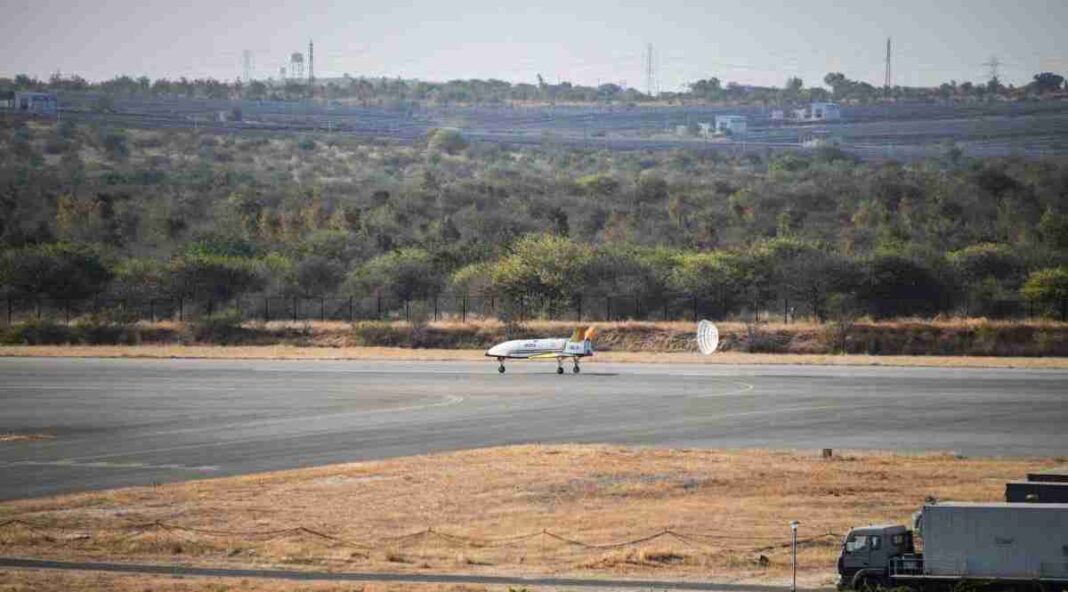INDIA: The Indian Space Research Organisation (ISRO) said that its Reusable Launch Vehicle (RLV) made a successful test landing on its own at the aeronautical test range in Chitradurga, Karnataka. The test was conducted with the involvement of the Indian Air Force, the Centre for Military Airworthiness and Certification, the Aeronautical Development Establishment, and the Aerial Delivery Research and Development Establishment.
A Chinook chopper from the Indian Air Force was used to launch the RLV autonomously at 7:10 a.m. on April 2, 2023, according to an ISRO release. At 7:40 AM, the RLV was autonomously released and successfully completed an autonomous landing using the Integrated Navigation, Guidance, and Control system.
A high-speed, unmanned, and exact landing on the same return path as if the vehicle had come from space was performed during the autonomous landing in the same manner as a space re-entry vehicle’s landing. The RLV made use of several indigenous systems, including ISRO-developed instrumentation, sensing systems, and localised navigation systems.
ISRO had previously demonstrated the RLV-TD on the HEX mission in May 2016, marking a significant accomplishment in the development of reusable launch vehicles. The LEX began with an integrated navigation test in 2019, followed by multiple engineering model trials and captive phase tests in subsequent years.
The teams were led during the test by Dr S. Unnikrishnan Nair, Director of VSSC, and Shyam Mohan N, Programme Director of ATSP. The mission was directed by Dr Jayakumar M., RLV’s project director, while the vehicle was directed by Muthupandian J., RLV’s associate project director.
ISTRAC Director Ramakrishna was also present for the test. Somanath, the chairman of ISRO and secretary of DOS, saw the test and offered his congratulations to the team.
The successful autonomous test landing of the RLV is a significant achievement for ISRO and a crucial step towards developing a fully functional Indian Reusable Launch Vehicle. The test showcases the capabilities of indigenous systems and technology developed by ISRO and paves the way for future developments in the field of reusable launch vehicles.
Also Read: ISRO to Launch 36 OneWeb Satellites Using Heaviest Launch Vehicle Mark-III from Sriharikota



